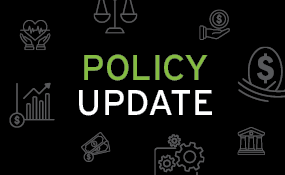Policy Updates
FSC Policy Update - Issue 84 27 February
Welcome to Issue 84 of the FSC Policy Update. This article outlines legislative and regulatory developments in the superannuation, investments, financial advice, tax, technology and innovation sectors, plus more. Learn about what’s impacting the financial services industry below. Click on the topic of interest below to read more.
FSC Policy Update - Issue 83 11 December
Welcome to Issue 83 of the FSC Policy Update. This article outlines legislative and regulatory developments in the superannuation, investments, financial advice, tax, technology and innovation sectors, plus more. Learn about what’s impacting the financial services industry below. Click on the topic of interest below to read more.


